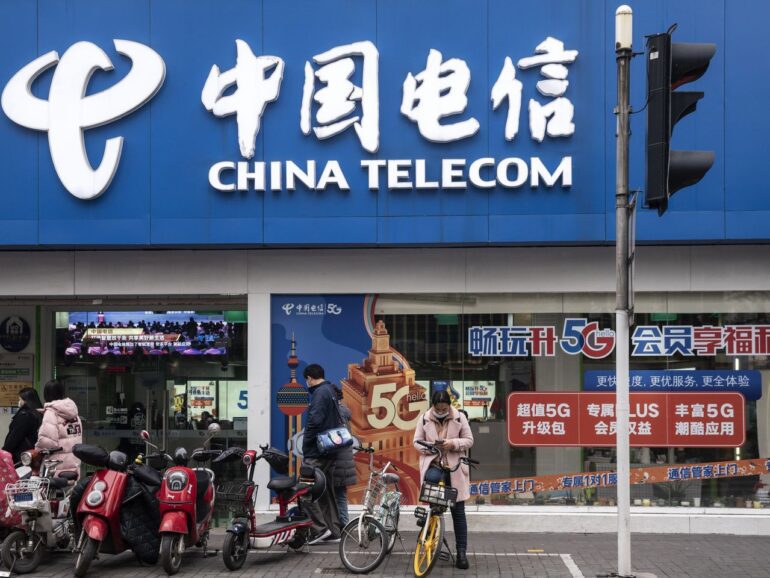TL;DR:
- China Telecom plans to establish a large-scale computing center in Shanghai’s hi-tech zone to support the city’s AI industry.
- The computing center will comprise 40,000 high-power racks dedicated to intelligent computing and supercomputing.
- The investment size remains undisclosed, but it marks one of China Telecom’s significant investments in computing centers.
- The center will primarily serve the local development of graphics processing units (GPUs) due to restrictions on Nvidia selling its advanced products to China.
- Lingang New Area Intelligent Computing Industry Alliance was created to foster collaboration and resource-sharing among members.
- Chinese Big Tech companies are launching their own large language models (LLMs), leading to concerns about computing power availability.
- Lingang New Area aims to become a national AI hub, attracting AI professionals and enterprises by 2025.
Main AI News:
China Telecom, a prominent player in China’s cloud market, has unveiled an ambitious initiative to establish a sprawling computing center in Shanghai’s hi-tech zone, aimed at bolstering the city’s artificial intelligence (AI) industry. Through one of its subsidiaries, the state-owned telecom company intends to deploy a staggering 40,000 high-power racks, each containing numerous servers, dedicated to intelligent computing and supercomputing. While the exact investment size remains undisclosed, this endeavor represents one of China Telecom’s most significant investments in computing centers, as the country intensifies its pursuit of national computational power capabilities, particularly in the face of heightened competition from the United States.
The rapid advancement of AI technology, exemplified by the recent proliferation of ChatGPT-like services, has created an unprecedented demand for substantial computing power, particularly for large language models (LLMs). To meet this escalating need, the computing center in Shanghai’s Lingang New Area will primarily cater to the local development of graphics processing units (GPUs). Notably, due to restrictions imposed on Nvidia, the leading global GPU manufacturer, preventing it from selling its most advanced products to China, home-grown GPUs will assume a pivotal role in empowering AI-driven enterprises in Shanghai and the Yangtze River Delta region, as reported by the official Shanghai Securities News.
China’s comprehensive approach entails harnessing resources from both the public and private sectors to achieve technological breakthroughs throughout the country. However, the effectiveness of this approach is still subject to debate. As part of these efforts, the Lingang New Area Intelligent Computing Industry Alliance was established in Lingang, spearheaded by China Unicom, another major state-owned telecoms network operator. The alliance aims to foster collaboration and facilitate the sharing of computing power resources and technologies among its members.
With several Chinese Big Tech firms, including Baidu and Alibaba Group Holding, diving headfirst into generative AI by launching their own LLMs, concerns are mounting over China’s access to adequate computing power. Notably, Alibaba owns the Post. In August of last year, the United States prohibited Nvidia from selling its high-performance A100 and H100 data center GPUs to customers based in China without a license, as part of a broader initiative to restrict China’s access to advanced chips.
Lingang New Area, established in Shanghai’s free-trade zone at the behest of President Xi Jinping in 2019, serves as China’s response to the growing need for expanded computing capacity. Local authorities envision this area as a crucial gathering place for the national AI industry. During an industry conference held in Lingang earlier this year, local officials reaffirmed their commitment to attracting 20,000 to 30,000 AI professionals and 500 related enterprises to the region by 2025. SenseTime, one of China’s leading AI companies, inaugurated an AI data center in the area in January 2022, which stands as the largest facility of its kind in Asia.
By 2025, Lingang aims to establish a comprehensive “multi-computing power supply system,” spearheaded by intelligent computing power, with an industry scale exceeding 10 billion yuan, according to Wu Xiaohua, the deputy Communist Party secretary of Lingang, speaking at the conference on Friday. State-owned telecoms network operators have emerged as integral components in the provision of computing power for AI development in Shanghai and its surrounding regions, as the city doubles down on its aspirations to become a leading national AI hub.
Conclusion:
China Telecom’s ambitious plan to establish a massive computing center in Shanghai’s hi-tech zone signifies the company’s growing influence in China’s cloud market and its commitment to supporting the development of AI. With a significant investment in computing centers and a focus on local GPU development, China Telecom aims to address the escalating demand for computing power driven by advancements in AI technology.
The creation of the Lingang New Area Intelligent Computing Industry Alliance further emphasizes collaborative efforts in resource-sharing and technology development. As Chinese Big Tech companies venture into the LLM space, concerns about access to adequate computing power are rising. The establishment of Lingang New Area as a national AI hub underscores Shanghai’s determination to attract AI talent and enterprises, propelling the city’s aspirations to become a key player in the AI market.

